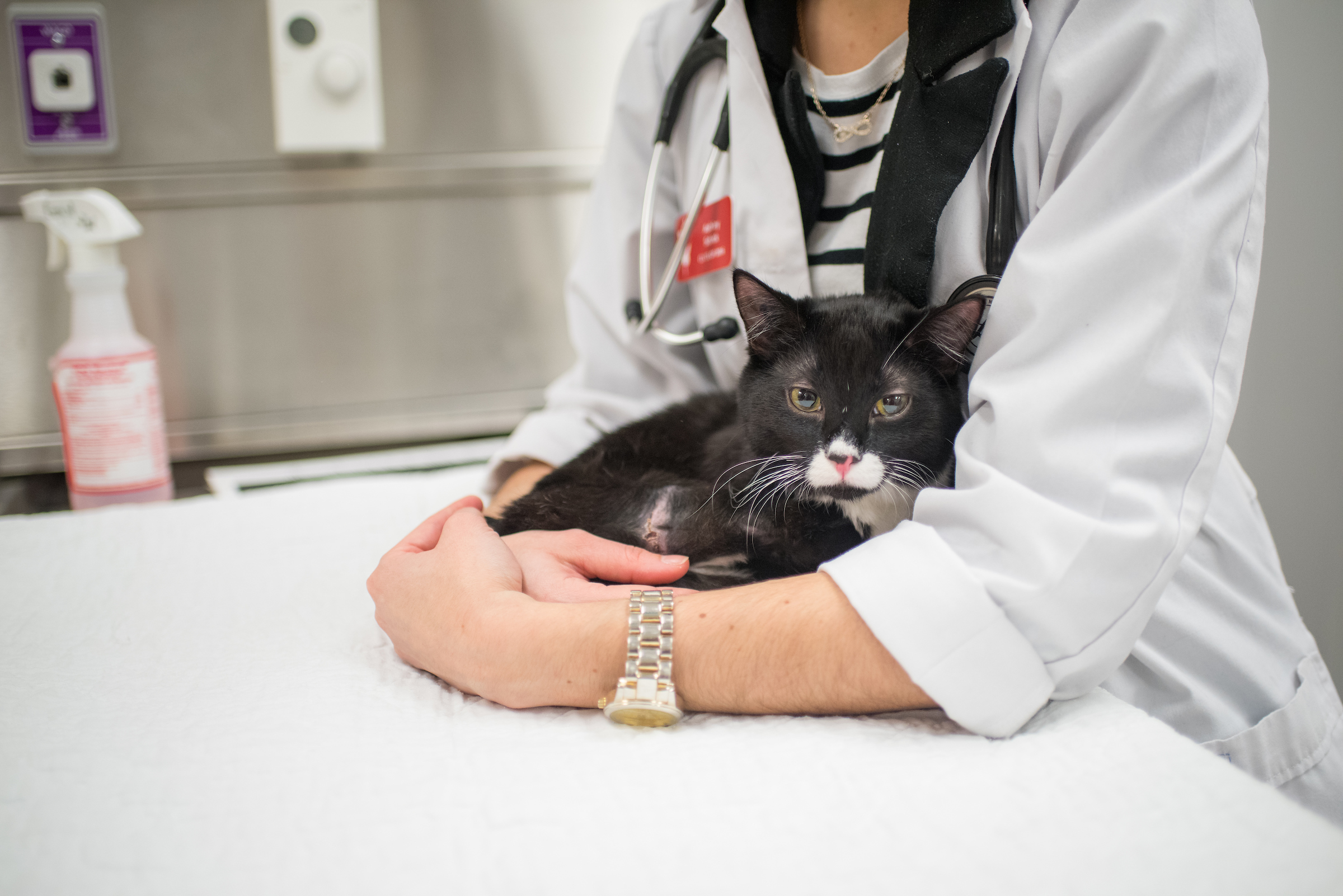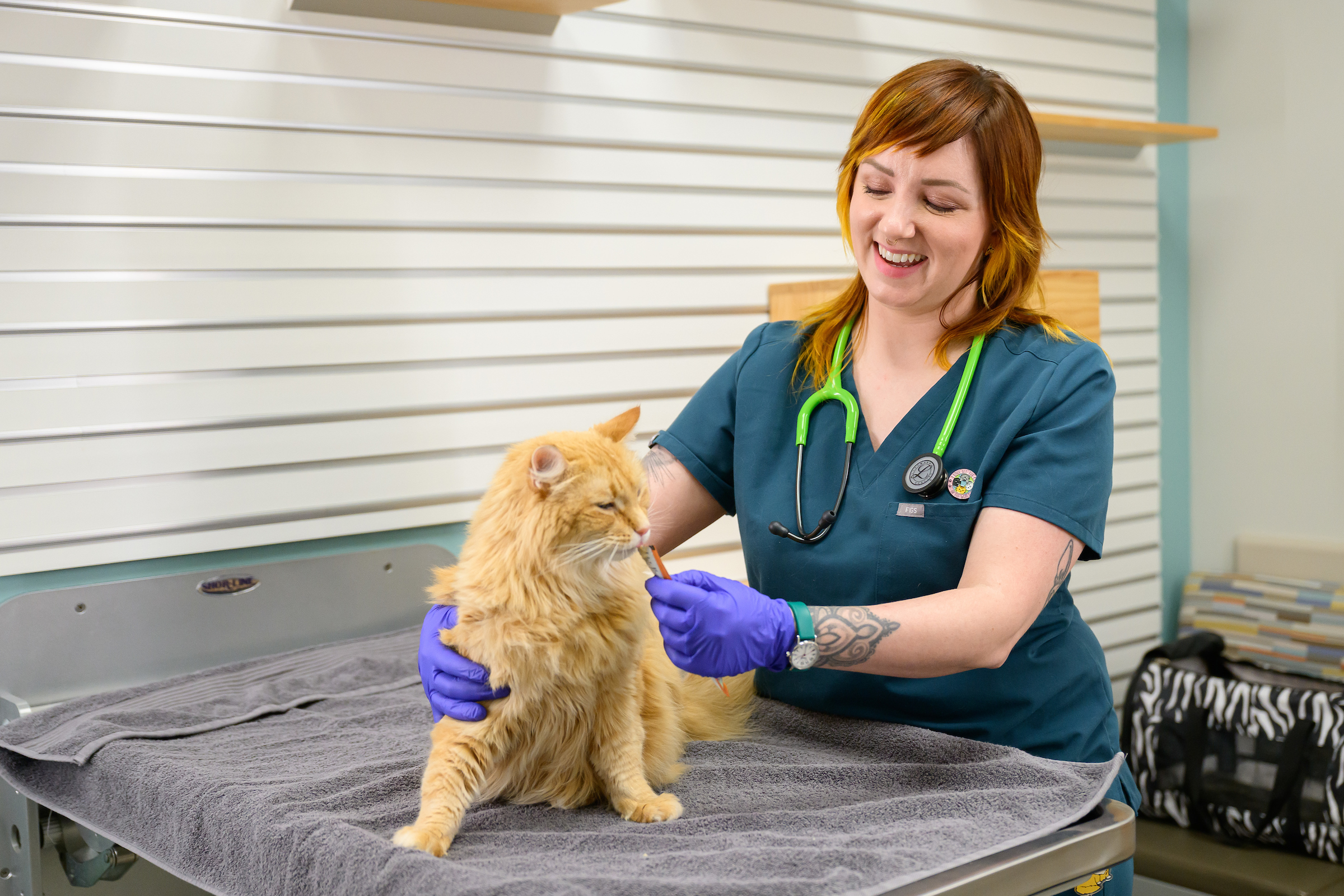Current Clinical Trials
Clinical research is a vital part of advancing veterinary medicine and improving the lives of animals living with chronic diseases. At the Harris Laboratory, we are committed to conducting ethical, impactful clinical trials that expand our understanding of Chronic Kidney Disease (CKD) and contribute to better diagnostics and treatments for our companion animals.
We are currently enrolling patients in a number of clinical trials focused on various aspects of CKD, including early detection, disease progression, and novel therapeutic approaches.
If you are a pet owner or referring veterinarian and would like to learn more about enrolling an animal with CKD in one of our studies, please contact the Harris Laboratory. Participation may offer access to advanced diagnostic tools, cutting-edge therapies, and expert care—all while contributing to meaningful scientific progress.
Click the links below to learn more about our currently enrolling clinical trials, including eligibility requirements, study goals, and how to get involved.
Frequently Asked Questions about Clinical Trials Participation:
What is a clinical trial?
Clinical trials are carefully designed research studies that explore new ways to prevent, diagnose, or treat diseases. In veterinary medicine, clinical trials often evaluate new or existing treatments, diagnostic tools, or management strategies in animals with naturally occurring diseases—such as chronic kidney disease (CKD). These studies help researchers answer important questions about safety, effectiveness, and potential benefits of new medical approaches.
Why are clinical trials important?
Before reaching clinical trials, a treatment or diagnostic test goes through extensive laboratory research. While lab studies provide essential data, they cannot fully predict how real patients will respond—especially when it comes to complex diseases like kidney disease. Clinical trials in animals are essential to understand how treatments perform in real-world cases, helping to improve care for future patients. Many veterinary trials are based on therapies already proven safe in humans, but species differences make animal-specific trials crucial.
What are the benefits of participating in a clinical trial?
- Access to advanced diagnostics or treatments that may not yet be available to the general public.
- Expert veterinary care and close monitoring from specialists involved in the study.
- Potential financial support, including coverage of diagnostics, medications, or treatments related to the study.
- Helping advance veterinary medicine by contributing valuable information that can benefit future patients and improve clinical care.
Are there risks involved in participating in a clinical trial?
- As with any medical treatment, there may be risks. These can include:
- The treatment might not work as hoped.
- There may be side effects or unexpected outcomes.
- Participation may require additional veterinary visits or tests compared to standard care.
- All potential risks and requirements are outlined in an Informed Consent document, which you will review and sign before joining a study. Importantly, participation is completely voluntary, and you may withdraw your pet at any time without penalty.
- To protect the safety and well-being of all animal participants, every clinical trial conducted through the Veterinary Teaching Hospital is reviewed and approved by the Institutional Animal Care and Use Committee (IACUC) at North Carolina State University.
How do I find out if my pet is eligible for a clinical trial?
Each study has its own eligibility criteria based on the animal’s species, age, medical condition, and treatment history. To learn more about available trials and whether your pet may qualify, please contact the Harris Laboratory directly. We’re happy to review current studies with you and answer any questions you may have.
Click the links below to learn more about our currently enrolling clinical trials, including eligibility requirements, study goals, and how to get involved.
Contact Us
harrislab-clinicaltrials@ncsu.edu
Hours
Monday – Friday 8:00am – 5:00pm EST
Currently Enrolling:

Effect of Iron Supplementation on the response to Varenzin-CA1 in Cats with CKD and Anemia
Read more

REVERSE CKD Study: A blinded, randomized, and placebo-controlled clinical trial of a novel veterinary product for the management of CKD in cats
Read more

Ammonia Excretion, A Novel Biomarker and Therapeutic Target for Feline CKD.
Read more

Novel Biomarker and Therapeutic Target for CKD in Dogs.
Read more
Clinical Trials Coming Soon!
